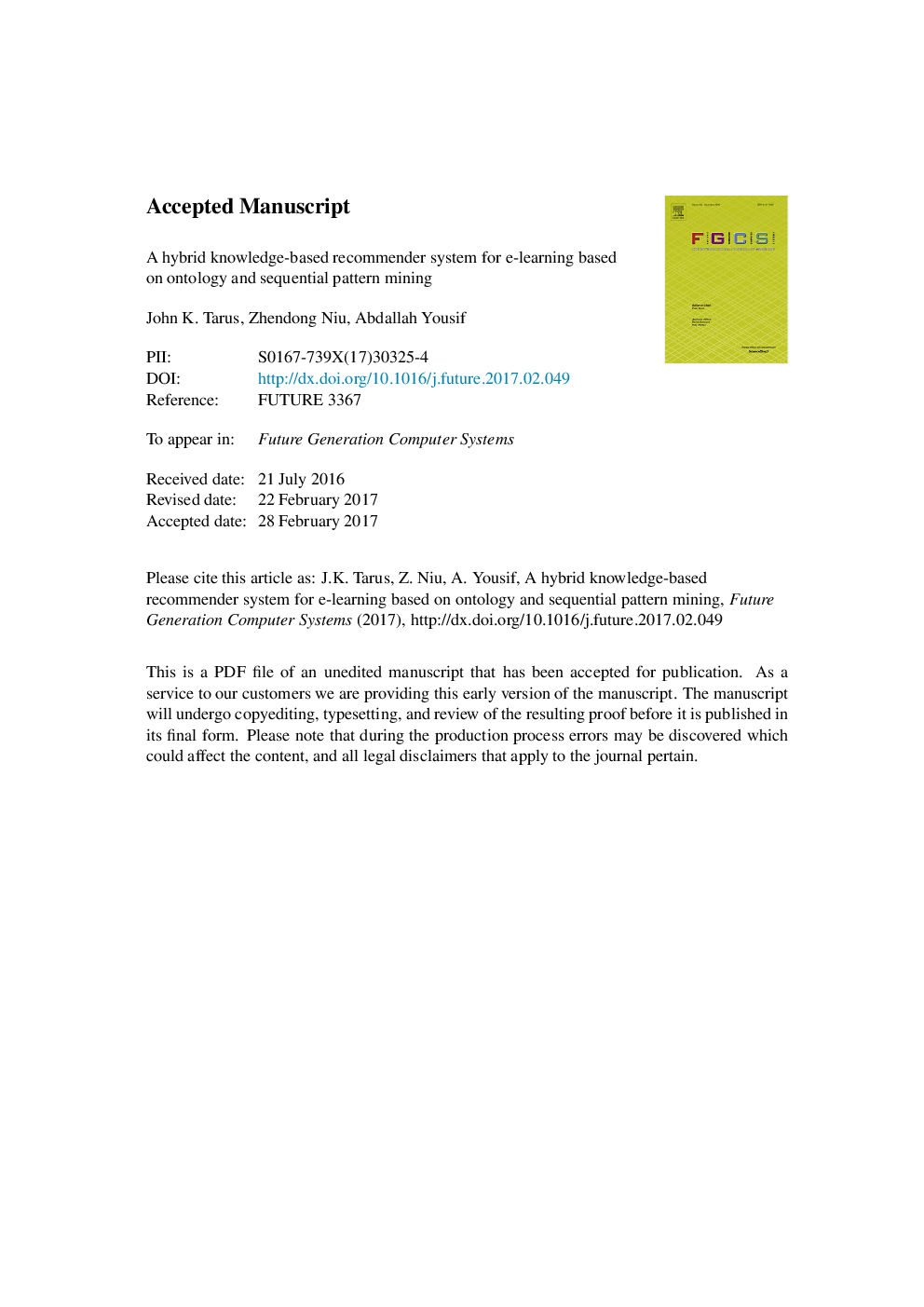ترجمه فارسی عنوان مقاله
یک سیستم پیشنهاد دهنده مبتنی بر دانش ترکیبی برای یادگیری الکترونیکی مبتنی بر هستیشناسی و معادلات الگو پیوسته است
عنوان انگلیسی
A hybrid knowledge-based recommender system for e-learning based on ontology and sequential pattern mining
| کد مقاله | سال انتشار | تعداد صفحات مقاله انگلیسی |
|---|---|---|
| 103126 | 2017 | 23 صفحه PDF |
منبع

Publisher : Elsevier - Science Direct (الزویر - ساینس دایرکت)
Journal : Future Generation Computer Systems, Volume 72, July 2017, Pages 37-48
ترجمه کلمات کلیدی
سیستم توصیهگر، یادگیری الکترونیکی، هستی شناسی، فیلتر کردن همگانی، معادله الگوی متوالی،
کلمات کلیدی انگلیسی
Recommender systems; E-learning; Ontology; Collaborative filtering; Sequential pattern mining;

